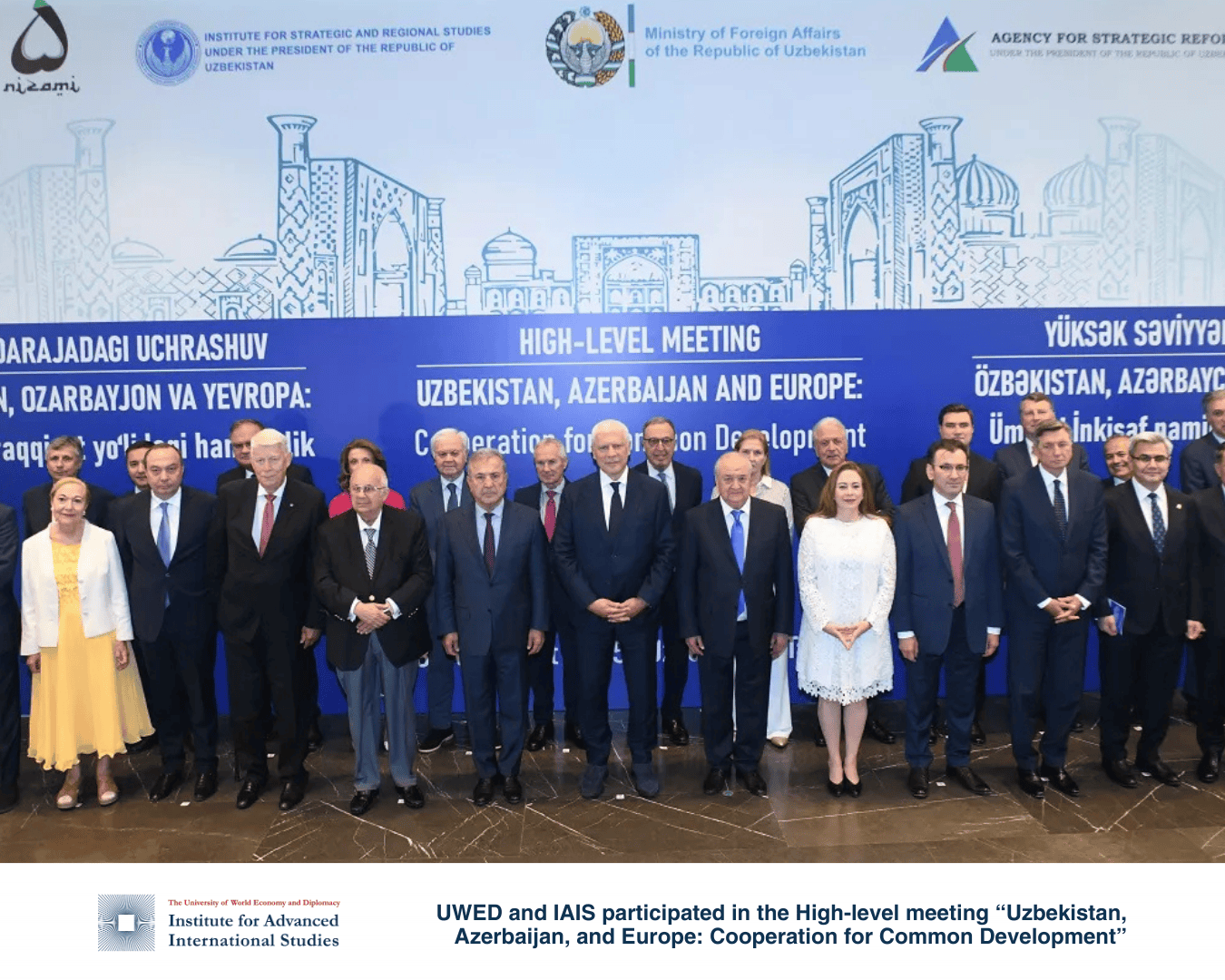
On August 18–19, the High-level meeting “Uzbekistan, Azerbaijan, and Europe: Cooperation for Common Development” was held in Tashkent. The forum was organized by the Ministry of Foreign Affairs of the Republic of Uzbekistan, the Agency for Strategic Reforms under the President of the Republic of Uzbekistan, the Institute for Strategic and Interregional Studies under the President of the Republic of Uzbekistan, and the Nizami Ganjavi International Center.
The main purpose of the meeting was to discuss current areas of cooperation between Uzbekistan, Azerbaijan, and European countries. Participants emphasized the importance of strengthening political dialogue, expanding economic and transport links, jointly responding to climate challenges, and developing cooperation in the field of innovation and digital technologies. The forum also aimed to deepen academic and expert interaction and create new platforms for interregional partnership.
The event was attended by representatives of government authorities, international and regional organizations, diplomatic missions, leading politicians and statesmen, as well as scientists and experts from Europe, Central Asia, and the South Caucasus. Among them were former heads of state and government, heads of international institutions, representatives of the European Union, and the academic community.
The University of World Economy and Diplomacy (UWED) and the Institute for Advanced International Studies (IAIS) were represented at the forum by a delegation led by the First Deputy Chairman of the Senate of the Oliy Majlis, UWED Rector Sodyk Safoev, who was accompanied by IAIS Deputy Director Odil Gafarov, IAIS Center Heads Khayotjon Ibragimov and Nargiza Umarova, as well as Associate Research Fellow Dinara Ishbaeva.
Sodyk Safoev spoke at the panel session “The Geopolitical Role of Central Asia in a Changing World”. In his speech, he noted the key factors determining the strategic importance of the region and emphasized the role of Central Asia in the emerging architecture of international relations. His speech was an important contribution to the discussion on contemporary challenges and prospects for cooperation.
Participation in this forum was yet another confirmation of the active contribution of Uzbek academic and expert institutions to the development of international dialogue. The high-level meeting in Tashkent demonstrated the relevance of Central Asia as a platform for exchanging ideas, seeking new solutions, and strengthening mutual understanding between regions.